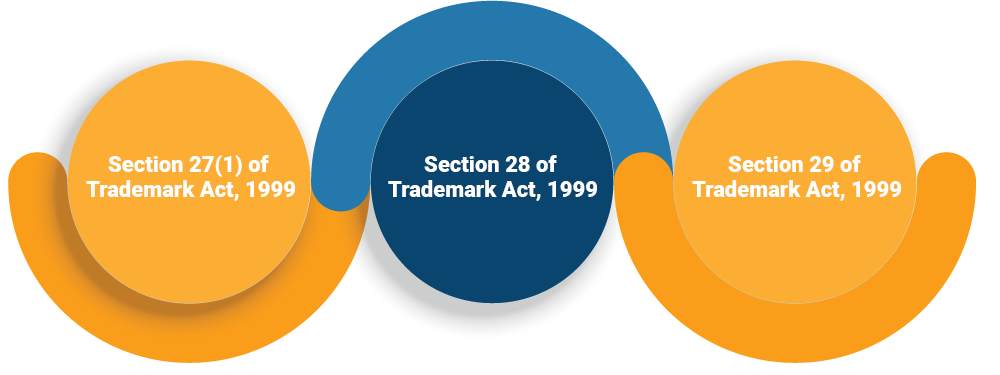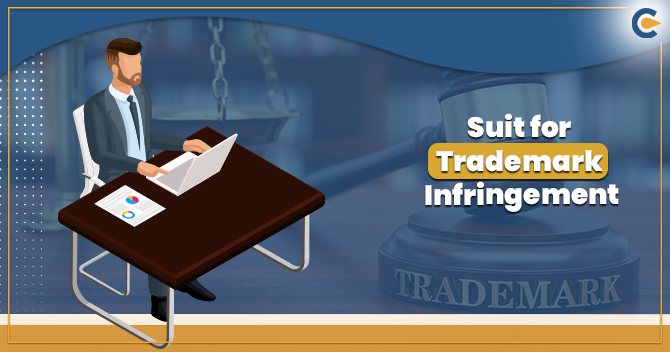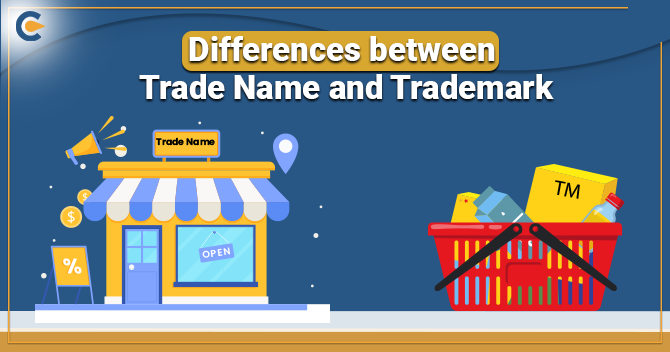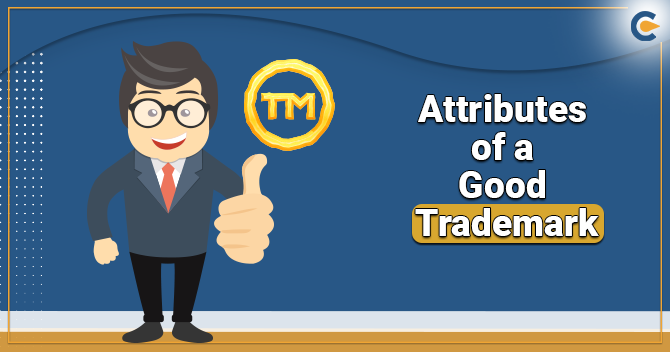Trademark infringement is the unapproved application of a trademark regarding products and additionally benefits in a way that is possibly going to cause confusion, complexity, or misunderstanding about the source of the products.
Trademark infringement is an abuse of the exclusive rights conferring to a registered trademark without the permission from the trademark owner or any licensee. Under this article, we would be discussing how one can file a Suit for Trademark Infringement.
What do you mean by Trademark, Law Suit, and Trademark Infringement under Legal Context?
First, let’s understand what does Trademark, a Lawsuit and Trademark Infringement stands for-.
Trademark
A Trademark also popularly known as brand name in the layman’s language is a symbol which represents a company. It can be a word, a letter, a picture, device label, or a combination. It also acts as a tool by using which general public can differentiate between the goods & services offered to them.
Law Suit
A civil action was taken in the court by the plaintiff (the person, who claims to have suffered the loss) against the defendant (the person, who allegedly have caused the loss).
Infringement of Trademark
When a person who is not the owner of a trademark, uses the proposed mark with mala-fide intent to create a false identity among the customers with the average mindset in the course of trade, is called infringement.
In other words, if any person uses another person’s registered trademark and claims to own it, it is a case of infringement. The primary condition is that the trademark should be registered before initiating an action for infringement.
Ingredients for Initiation of Suit for Trademark Infringement
Ingredients which must be there to initiate a suit for Trademark infringement action are as follows-
- The Trademark should be either identical or deceptively similar to the registered mark.
- The goods & services should be specifically covered by the registration of trademark.
- The utilization of the alleged infringing trademark should be in the trade course; and
- One must make the use of the allegedly infringed trademark as a trademark.
As per the law, once a trademark is registered under a specific person for specific goods and services, he or she holds the exclusive right of that trademark in relation to the said good or service.
Provisions Related to Suit for Trademark Infringement
The Provisions related to the filing of Suit for Trademark Infringement provided in Trademark Act, 1999 are explained below-


Section 27(1)
Section 27(1) of the Trademark Act, 1999 specifically entitles a person to initiate a legal proceeding to prevent infringement and recover damages of infringement of his registered Trademark.
Section 28
Section 28 confers upon the registered proprietor the right to exclusively use his registered Trademark and to obtain relief against the person who is an unauthorized way uses the trademark.
Section 29
Section 29 of the Act provides for infringement of trademarks. The section provides nine subsections that enumerate different ways in which infringement occurs.
Conditions provided u/s 29
There are certain conditions provided in section 29(1), 29(2), 29 (3) which must be fulfilled to initiate a legal proceeding for Trademark infringement, are given below:-
- The alleged infringed trademark must be a registered trademark;
- The person who has been allegedly infringing the Trademark should not be the original creator or the registered owner of the concerned trademark;
- The person who is causing the infringement must use it in the course of business or trade;
- The person must use the trademark without the authorization.
- The alleged infringing trademark must be identical or similar to the registered trademark to initiate the legal proceedings.
- The infringed trademark must be related to the class of goods and services under which the actual owner has registered its trademark.
- The infringed trademark must be used in a manner in which a trademark is used. (To cause confusion or deceive the buyers into believing that the infringed trademark is the original one).
What Constitutes the Use of a Trademark?
According to Section 29(6) of The Trademark Act, 1999[1], the use by a person means:-
- When a person offers the goods for sale under the name of the registered trademarks
- When a person stocks the goods for sale or intends to expose them for sale in the market under the registered trademark.
- When a person offers supplies services under the registered trademarks
- When a person imports or exports goods under the registered trademark
- When a person uses the registered trademark on business papers.
- When the trademark is used by the person for advertising.
Case Laws on Trademark Infringement
There are few important case laws associated under the trademark Infringement, which are as follows:-
Glaxo Smith Kline Pharmaceuticals Ltd. v. Unitech Pharmaceuticals Private Ltd., Decided on 16th December 2005 Delhi High Court.
The plaintiff alleged that the defendant’s mark Fexim is deceptively similar to the registered Trademark “Phexin” which is used for pharmaceutical preparations.
The packing material was also deceptively similar, and it was claimed by the plaintiff that the intention of the defendant is not only to infringe the trademark, however, also to pass off the goods as both the marks are also phonetically similar.
M/s Bikanervala v. M/s Aggarwal Bikanerwala, 17 (2005) DLT 255
The plaintiffs were running his business under the Trademark “BIKANERVALA” and alleged that respondent’s Trademark “AGGARWAL BIKANERWALA” claiming that the said Trademark is deceptively similar to the Trademark of the plaintiff who was used from 1981 and also got registered it in the year 1992.
The judgement was passed by the court in favour of plaintiff. The defendant was restrained from producing, selling or advertise any food article under the trademark ‘AGGARWAL BIKANERWALA’
Exceptions to Infringement Actions (Section 34)
There are certain exceptions against the infringement of the Trademark, and the exceptions are mentioned in Section 34. The act states that the proprietor or a registered user of registered Trademark cannot interfere or put restrain on the use by any person of a Trademark similar to his if the other person has continuously used that Trademark from a date prior-
- to the use of the first stated Trademark with relation to those goods or services be the owner or a forerunner in their title; or
- to the registration date of the first stated Trademark in respect of the goods or services in the name of the owner of a forerunner in their title;
- Whichever is the earlier
The Registrar should not refuse (on such use being proved) to register the second Trademark by reason only to the registration of the first stated Trademark.
Remedies Available Against Suit for Trademark Infringement
According to the provisions of the Trademarks Act 1999, the registration of a trademark is not a pre-requisite to avail the criminal or civil remedies if the rights of a party are violated. Both civil and criminal remedies can be availed in India against infringement and passing off.
Civil Remedies
For the civil remedies, one can seek aid from the provisions of the Sections 134 &135 of the Trademarks Act, 1999, under which the court grant relief in any suit for infringement or for Passing Off including the Permanent & Interim injunction. Injunction is to put an order to stop.
Criminal Remedies
Section 103 of the Trademarks Act, 1999 provides the provision under which criminal remedies can be availed for the encroachment. Infringement of a trademark is a punishable offence under which, the offender is punished with imprisonment for a term of 6 months to 3 years and with fine ranging from 50,000 but which may extend to INR 200,000.
Conclusion
Being a legal right, Section 134 of the Trademarks Act, 1999 provides the jurisdiction for filing of suit for Trademark Infringement. According to the provisions, a Trademark infringement Suit can be instituted before a District Court underlining the local limits of whose jurisdiction, at the time of the institution of the suit or other proceeding. The local limits can be the place where the person voluntarily resides, carries business, or works for profit. Contact our professionals at Corpbiz to know to get hassle-free Trademark Registration in India.
Read our article:Everything you need to know about Penalties & Remedies for Trademark Infringement in India











